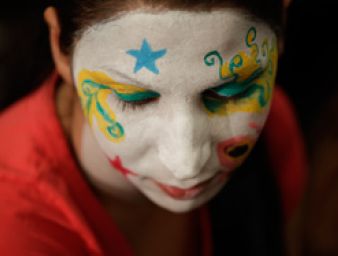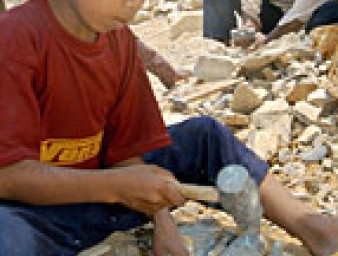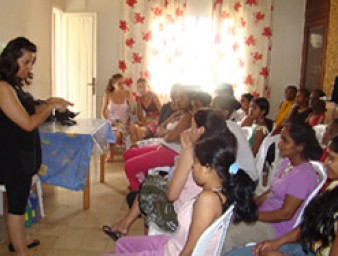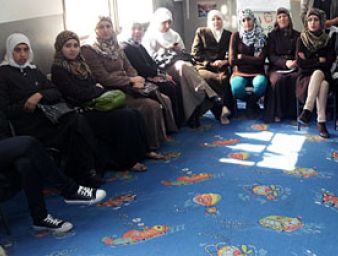20 years of fighting modern slavery
15 December 2011

Wisland, 13 years old, was mistreated for years by a relative in Port au Prince, Haiti, who had taken her in because her mother could no longer support her. Wisland’s mother had hoped her daughter would get an education and a better future in the capital, away from the hard countryside existence. Instead, in exchange for board, the little girl fetched water for the family, cleaned the house and dishes and carried the heavy merchandise the woman she lived with sold on the street.
Eventually, one day in 2010, a neighbour noticed that Wisland was not attending school and she signed her up for the Foyer Maurice Sixto, a non-governmental organization (NGO) supported by the UN Voluntary Fund on Contemporary Forms of Slavery that offered her food and schooling and where she finally felt safe.
Wisland was what is commonly called a ‘restavek’, or literally translated ‘stay with’, child in Haiti. ‘Restavek’ children are boys and girls under the age of 18, usually from poor rural areas, who are placed by their parents in the care of a slightly better off family in the city. The family accepts to take care of the child in exchange for domestic help. However, many of these children live in conditions which have been described as a contemporary form of slavery by the Special Rapporteur on contemporary forms of slavery, Gulnara Shahinian.
2011 marks the 20th anniversary of the establishment of the Voluntary Fund which was created to support NGOs that help victims of contemporary slavery regain their independence, lives and dignity. Four hundred projects supported by the Fund have directly assisted thousands of victims and potential victims in more than 90 countries all around the world. Victims receive medical, psychological, and legal assistance, as well as an education, vocational training and support in setting up income-generating activities, thus fighting the social factors which foster slavery.
Speaking at an event in Geneva to mark the anniversary, Gulnara Shahinian said that an estimated 27 million people, including boys and girls, lived their lives every day in slavery or slavery-like conditions, despite efforts by the UN, Governments and civil society to end the scourge.
“The main reason for this is that slavery continues to evolve and transform itself in various ways but its essence – the situation or condition whereby one person is owned by another – remains the same,” she said. “For example, today, in situations where labourers are being forced to work, slavery-like practices occur with regard to domestic workers and as well as in the construction, and food and garment industry. Some of the most traditional forms of slavery such as debt bondage has evolved and now manifests itself in the plight of some migrant domestic workers.”
“Recent cases where governments have been found guilty of failing to protect their citizens against slavery, alerts us to the fact that to be successful in the fight against slavery, we need to acknowledge the existence of traditional forms of slavery, increase our understanding of slavery in its modern forms and develop innovative strategies to tackle slavery,” Shahinian added.
The Board of Trustees of the UN Voluntary Fund welcomed recent initiatives taken to encourage business enterprises to respect human rights, including the endorsement by the Human Rights Council of the Guiding Principles for the Implementation of the UN ‘Protect, Respect and Remedy’ Framework in June 2011.
“Businesses around the world have made new commitments to stopping contemporary forms of slavery from occurring in their workplaces or supply chains. While Governments bear the primary responsibility for the implementation of human rights, the private sector also has an integral role to play in eradicating contemporary forms of slavery,” said the Chairperson of the Board of Trustees of the Voluntary Fund, Virginia Murillo.
Murillo also revealed that the Fund needed a minimum of 1.5 US dollars a year to fulfil its mandate, but that this year it so far secured less than a third of that amount.
15 December 2011
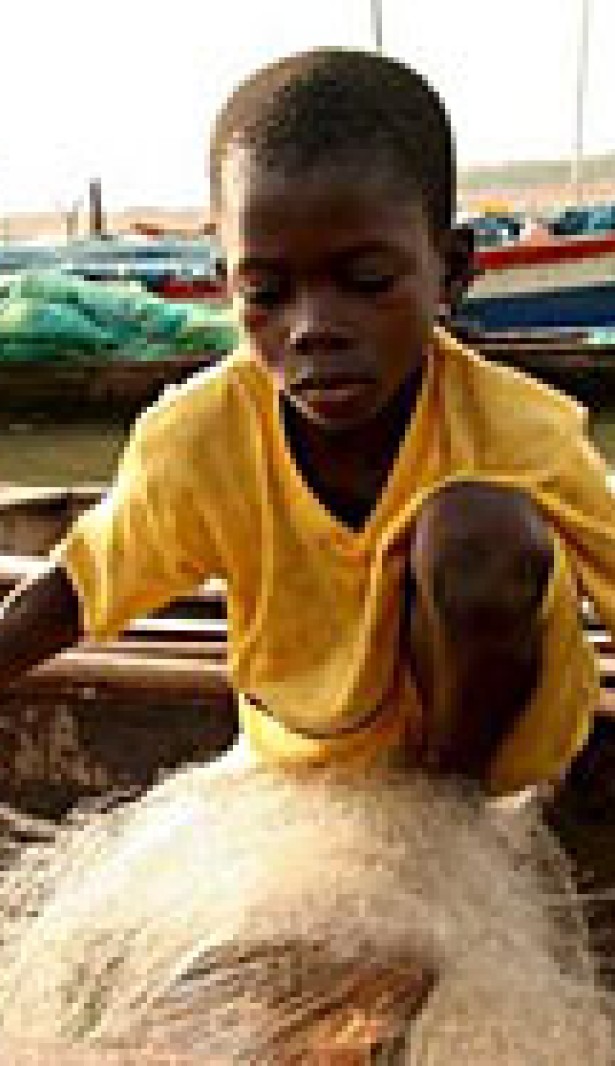
VIEW THIS PAGE IN:
